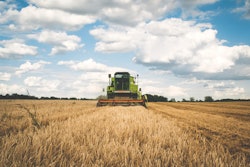
Aleph Farms Ltd. announces its new sustainability strategy to eliminate emissions associated with its meat production by 2025 and reach the same net-zero emissions across its entire supply chain by 2030.
Aleph Farms cultivates real steak without harming animals or the environment. Amid the Coronavirus disease (COVID-19) health crisis, Aleph Farms consolidates its approach for food system resilience to cope with local and global supply chain disruptions that put food securities at risk, but also to promote natural ecosystem preservation and reduce friction points with wild animals. As it prepares for active pilot-plant (BioFarm) operations next year, the company has set the bar higher for its sustainable development goals.
The company outlined a series of efforts and achievements it will leverage to reach its goals:
· Sustainability Advisory Board. The company gathered top-level thought leaders from around the world to solicit views, reach objectives and implement its holistic approach to sustainability across the ecosystem’s entire value chain—Danielle Nierenberg, president of Food Tank and an expert on sustainable agriculture and food issues; Aimée Christensen, chief executive officer of Christensen Global Strategies and the Founder and Executive Director of the Sun Valley Institute; and Marc Buckley, advocate for the UN SDG's, Advisor & Consultant to the UNFCCC, Expert for WEF on Innovation, Sustainability, Agriculture Seafood, Food, and Beverages, and Climate Speaker and Mentor trained by former US Vice President Al Gore.
· Z-Board: In February, the company announced the establishment of its ‘Z-Board’ – a dialogue platform that engages Generation Z leaders in the vision development for future generations.
· Sustainable Production and Process Design: The company is collaborating with Black & Veatch, a global engineering and construction company, to build a resilient, compliant and sustainable infrastructure for large-scale production with foundational principles of circular economy and renewable energy.
“At a time when the occurrence of regional and global crisis is increasing - African Swine Fever, Australia fires, COVID-19 – food system resilience is at the core of Aleph Farms' vision and the key to building a better future for generations that follow,” says Didier Toubia, co-founder and CEO of Aleph Farms. “We have to rethink the way we use our natural resources, but our sustainability approach encompasses not only aggressive environmental goals. It also targets social, nutritional and economic objectives. We are identifying challenges and bottlenecks, engaging with experts and youth leaders, raising awareness and driving innovation across the entire value chain in order to accelerate the necessary global transition of our food system into the right direction.”
“The way food systems across the world utilize the world’s finite resources wields a major influence on the direction in which climate change, food security, and socio-economic consequences will follow,” adds Lee Recht, head of sustainability at Aleph Farms. “We see the situation and the challenges through an ‘innovation lens’ that helps us understand the responsibility we share and the impact we have on the state of our world and our people.”














